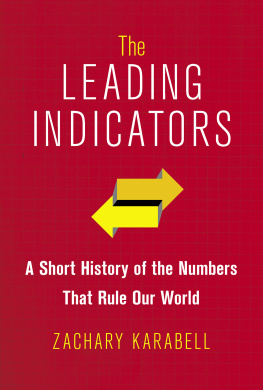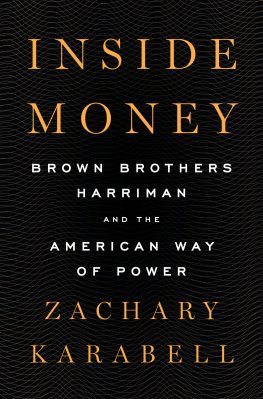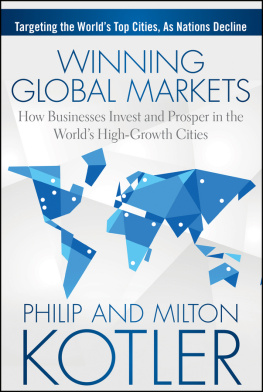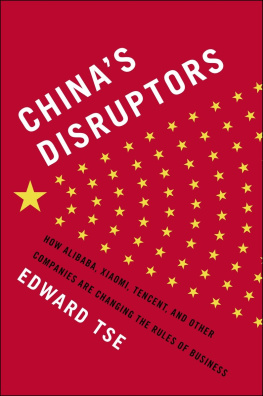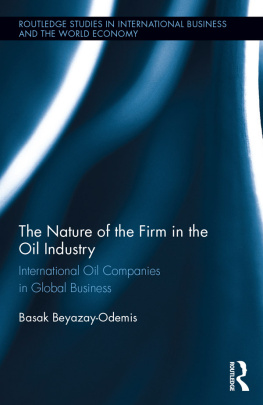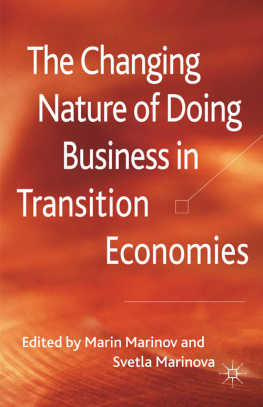
SUSTAINABLE
EXCELLENCE

CONTENTS
CHAPTER 1
WHAT IS SUSTAINABLE EXCELLENCE?
WHEN WE INTERVIEWED GOOGLE CEO Eric Schmidt for our book, he asked us a seemingly simple question: Just what did we mean by sustainable excellence? Thats the question this book tries to answer, and the fact that Schmidt asked it shows that even though sustainability has become a mainstream term, it still means different things to different people. In fact, as the practice of sustainability has come into wider use, the word has become a Rorschach test whose interpretation says as much about the person using the term as it does about the idea itself.
Eric Schmidt is not alone in being unsure of its meaning. The seminal definitionwhich continues to be used todaywas introduced in 1987 by a United Nations (UN) commission headed by former Norwegian prime minister Gro Harlem Brundtland: Sustainable development is development that meets the needs of the present without compromising the ability of future generations to meet their own needs. This formulation works for the United Nations, but it provides only a starting point for companies grappling with what it means for them. Whats more, some critics have dismissed sustainability and its cousin, corporate social responsibility, as nothing more than feel-good activities that divert attention from businesss core mission of providing high-quality products and services that deliver returns for shareholders and value for customers. A long cover story in the Economist in 2005 made many of these points, often with a dismissive tone, concluding that most corporate social responsibility, in fact, is probably delusional... and reduces both profits and social welfare. Critics on the left have charged that the term is devoid of meaningor worsebecause its been hijacked by corporations focused more on marketing a kinder image than in achieving real change.
All of these claims miss a larger truth: The world is changing, and changing fast, and sustainability has become the defining factor in business success.
What do we mean by sustainability? A sustainable business is one that delivers value for investors, customers, and employees; improves the living standards of its employees and the communities it touches; makes wise use of natural resources; and treats people fairly. In many respects, a sustainable business is simply a well-run business. Until quite recently, however, issues such as environmental impact, efficient use of resources, and human rights were not core concerns of many companies. Today, companies achieve sustainable excellence when they integrate consideration of society and the environment into their DNA. How they do that is what this book is about.
First, its important to note that one thing has not changed: Companies are organized to make a profit and deliver returns for investors and value for customers. Because businesses need to be profitable, no company can achieve sustainable excellence if it does not ensure its own survival in a hugely competitive environment. The ingredients of a profitable enterprise include access to capital, to a reliable and affordable supply of natural resources, and to the best possible talent; a commitment to innovation; effective marketing and communications; and the support of regulators and the communities where they operate. When combined with solid execution, these ingredients produce the worlds best enterprises.
These building blocks of winning businesses would have looked as familiar to the GE run by Thomas Edison as they do to the GE run by Jeff Immelt. What is different is that the context in which these building blocks are formed has changed radically over the past two decades, and it continues to evolve rapidly. In todays world then, companies need to do two things: They must not only embrace superior business practices; they must also be good at applying principles of sustainability. Hence sustainable excellence.
Sustainable excellence encompasses environmental questions like climate, water, and biodiversity; they are central to this story. But this is not a book whose only shade is green. Sustainable excellence includes myriad issues, including the impact of business on emerging economies and the labor rights of all workers in global supply chains. Our view is a comprehensive one, and it reflects our belief that companies whose definitions of sustainability are too narrow are likely to fall short in their attempts to innovate and thrive in todays world.
Practicing sustainable excellence has become essential today, and it will be even more so in the future due to fundamental changes in the worlds economy.
Globalization is no longer just about outsourcing Western business operations and manufacturing to the developing world. We are on the brinkif we are not there alreadyof a business climate where markets in emerging economies present equal or greater promise than the more mature markets of the United States, Europe, and Japan. Global multinationals compete not only with their established peers, but also with new rivals from China, India, Brazil, and beyond, such as mining giant Vale from Brazil, steel manufacturer ArcelorMittal of India, and the worlds largest telecommunications provider, China Mobile.
Social contractsthose informal but vital understandings between business and the larger societyare being rewritten, leading to charged debates over the relative roles of business and government in providing public goods such as water, health care, and security. In many parts of the world, the old division of labor, where government sets rules and passes laws while business deploys capital and creates employment, no longer exists. Privatization across the globe has led more people to look to business and the private sector for solutions to everything from education to health to water. Demographic pressures add yet another volatile element, with some regions and countries such as Europe, Japan, and China facing aging societies and some like India and Indonesia facing youthquakes that require countless new jobs to sustain social stability.
In addition, the steady march of digital technology has given individuals, nonprofit groups, and other organizations a degree of autonomy that would have been unimaginable a generation ago. These changes have remade the ways in which information flows from, to, and about companies, which now livelike all of usin an era of radical transparency. Companies know that any and all information will likely become public and that their decisions face a level of real-time scrutiny unthinkable a generation ago. That changes the nature of decision making, and it alters the calculus about everything from strategy to the way research and development are carried out.
At the same time that they are confronting these challenges, businesses are also faced with serious questions about the availability and prices of the natural resources they use. Recent price spikes for everything from oil to copper and other industrial metals are something no company can ignore. And then there is the proverbial eight-hundred-pound gorilla, climate change, which has the potential to remake our energy system, alter the basic economics of natural resources, and produce unforeseen and unpredictable geopolitical consequences.
Climate change, energy consumption, and the depletion of raw materials receive most of the publics attention, but other issues present equivalent challenges for companies. Many business leaders know that access to water and water quality may dramatically inhibit their ability to operate. Companies that depend on easy access to water include not only obvious examples like Molson Coors and Coca-Cola, but also pharmaceutical giants such as GlaxoSmithKline, apparel companies like H&M, and global manufacturers such as United Technologies, all of which have signed the UNs CEO Water Mandate and pledged to manage water sustainably.
Next page

